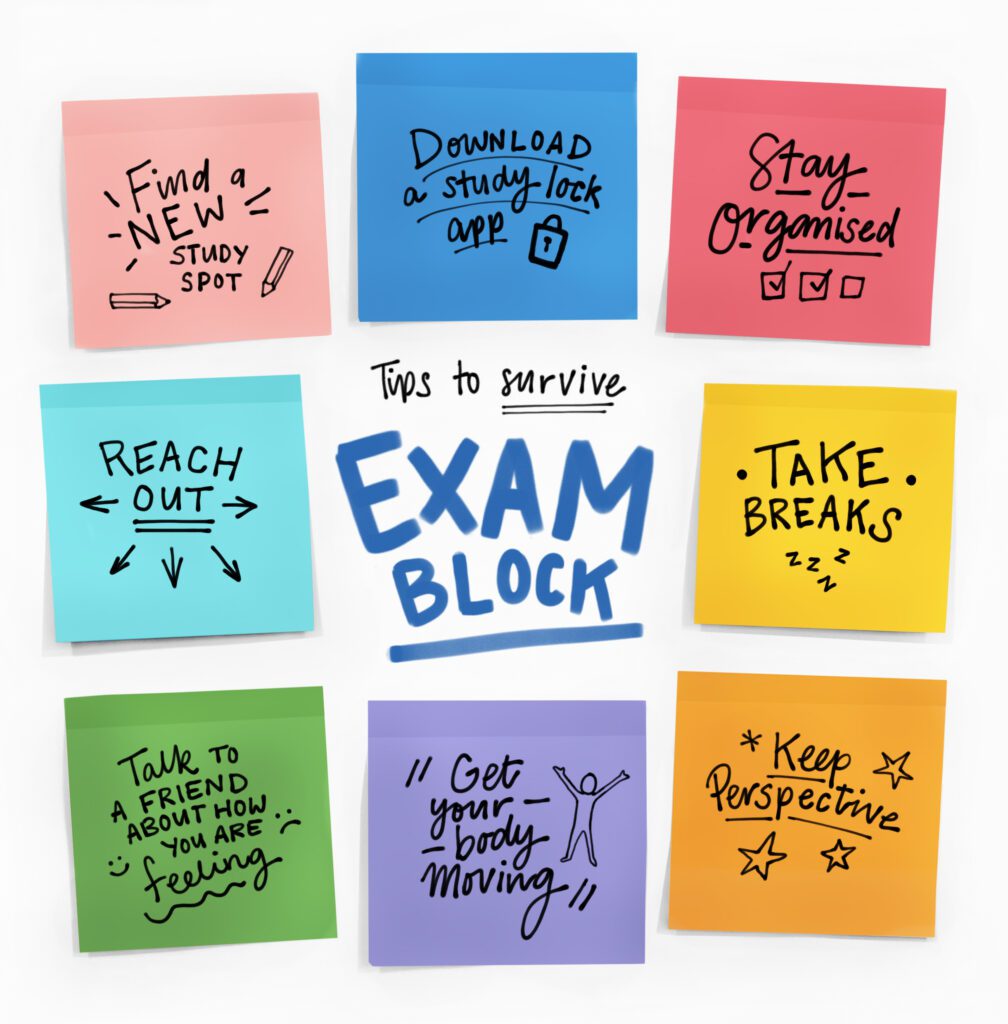Here’s how to cope when stressay season rolls round.
Stay organised
Keeping a record of your assignments, homework and exams can help you plan out enough time to put to each so you can avoid the last minute cram sessions and all-nighters.
Keeping a timetable and study guide can help you know if you’re overloaded before it becomes too much. If you can’t see how to fit in everything you need to do, take the schedule to a teacher or support staff at the school to discuss what options there are to make things more manageable.
Give yourself a break
Get up, walk away. Using study breaks can actually lower your stress levels and make you more productive. That doesn’t mean hang out at the park all day and expect to knock everything over in a blaze of glory at the last minute. Breaks do not equal procrastination – but using your breaks wisely means you can give your brain a rest and apply yourself fully for short periods of time.
Jump around
Try going for a walk, letting loose in a mini dance session or stretching. Getting your body moving and blood pumping can help you kick the study slump and can even trigger positive thoughts and give you more energy. Allowing your brain to tune out and focus on something physical can also help you think clearer when you get back to it.
Find a study spot that works for you
Find somewhere you are comfortable and can focus to study. If finding the right place is a mission, talk to your family and ask them to keep it down, so you can get some peace when you’re in the zone. The perfect study zone will be different for everyone, some people need music while they work, and some need quiet. It doesn’t have to be your desk or the foot of your bed either – you might be able to find somewhere at a local library or at school that you can use outside of school hours. Find what works for you and go for it.
Use a study lock app for your phone.
Seriously – this should have been point number one. There are a bunch of apps you can use to lock yourself out of your phone for study time and help you kick procrastination.
Keep it in perspective
The thing is, the world doesn’t end at the end of high school, if you get a bad mark, have to repeat a subject or a whole year. There will be times when you’re on top of it all and there is likely to be times when you feel like it’s on top of you. That doesn’t mean your life is over. If you’re feeling down about stress, workload or a setback, take a moment to remember everything else important to you. Your friends, family, hobbies, interests and strengths. There’s a lot that makes you, you and it’s a lot more than some academic grades. Your education should be about setting you up for life, make sure it’s working for you.
Vent
When you have a lot on the go it can feel like the balance might tip at any second. It’s OK to vent now and again. Not in a raging frenzy kind of way, but talking to a trusted friend or family member can release some of the pressure and reconnect you with the people who care about you. By opening up yourself, you could make it easier for a friend to talk about how they are feeling too. If you can’t find the right someone to talk to just now, you can try a free service like Kids Help Line.
If it feels like too much, reach out
Exams are not designed to turn you into a mess or to prevent you from sleeping – if you feel like it’s too much, tell someone. You are not a failure, it just means that right now, that particular set up isn’t working for you. That’s OK.
Your education is about giving you the skills and knowledge you need to open up doorways for a great future. Sure, life has hard times and setbacks and you’re learning how to deal with them too, but that doesn’t mean school should be a negative experience. Remember, if you don’t get the help or support you need at first, find someone else to talk to until you do.





